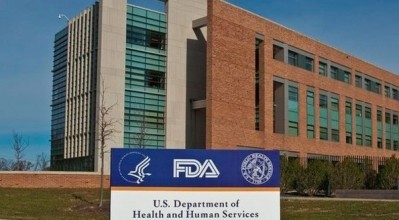Researchers highlight need for more responsible CBD labeling

While CBD is the active ingredient in an FDA-approved drug, it also forms the basis of thousands of new products in the dietary supplement as well in the food and beverage space.
However, a study published in Cannabis and Cannabinoid Research said that these products often come with misleading labeling or marketing claims. The authors said better labeling and enforcement on labeling is needed.
Limited enforcement
“To date, FDA enforcement has been limited to sending warning letters to manufacturers, largely for mislabeling or misbranding their products as unapproved new drugs, or for making claims that a product is indented to treat a disease condition on labels and marketing materials (FDA considers all sales materials, including consumer testimonials used in marketing, to be extensions of the label).”
Steve Northrup, a health policy and politics expert and founding partner of Rampy Northrup, which bills itself as a bipartisan government affairs firm, presented during a recent National Products Alliance webinar. During the presentation Northrup said, “The last thing we want is for consumers to get hurt, because that ultimately will crush the CBD market domestically if there is evidence and stories of people getting hurt from buying products that are harmful for them. We think that is what FDA should want as well, we’re willing to partner with them in any way we can for them to move expeditiously. We’re trying to get members of Congress to also put some heat on FDA to recognize that just because these products are being marketed, doesn’t mean FDA should continue to take a blind eye.”
Public safety
The study also highlights that proper labeling of CBD products isn’t just a legal issue, it’s an important public health issue. “Product labels, and associated marketing materials, provide vital information about that product's composition and ingredients, as well as the potential risks and benefits of use. Unsubstantiated health-related claims, and unallowed drug claims, on labels of CBD products may create harm by enticing consumers to forgo more evidence-based medical interventions,” the authors said, adding that not disclosing major allergens, solvents, and excipients could result in harm and/or lack of efficacy.
Additionally, the authors noted independent researchers and the FDA have uncovered widespread mislabeling of hemp and cannabis products. This includes both underlabeling and overlabeling of CBD and/or THC.
“The actual contents of available products can vary considerably from what are disclosed on the label; sometimes no CBD is present at all. Inadequate label information also poses risks of unintended, unwitting, or overconsumption of THC, the primary intoxicating compound in Cannabis, as well as potentially harmful contaminants,” the authors said.
A message to manufacturers
The study also speaks directly to manufacturers of hemp and CBD products, reminding them that products sold and marketed as food or dietary supplements should adhere to FDA regulations for labeling and marketing. This is a gray area, given the FDA considers hemp and hemp-derived CBD products to be an approved drug, despite the fact that the FDA interpreted federal law to exclude them from these categories.
The authors conclude by noting that FDA-regulated product labels are an essential tool for consumer protection and consumers rely on those labels to make informed decisions.
Initially, the FDA indicated it would expedite its regulation process of hemp-derived CBD products. However, this month the agency announced it would substantially scale back on all inspections, citing coronavirus concerns.
Source: Cannabis and Cannabinoid Research
6 Mar 2020 https://doi.org/10.1089/can.2019.0101
"Labeling of cannabidiol products: a public health perspective"
Authors: J. Corroon et al.

















